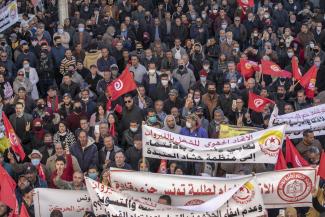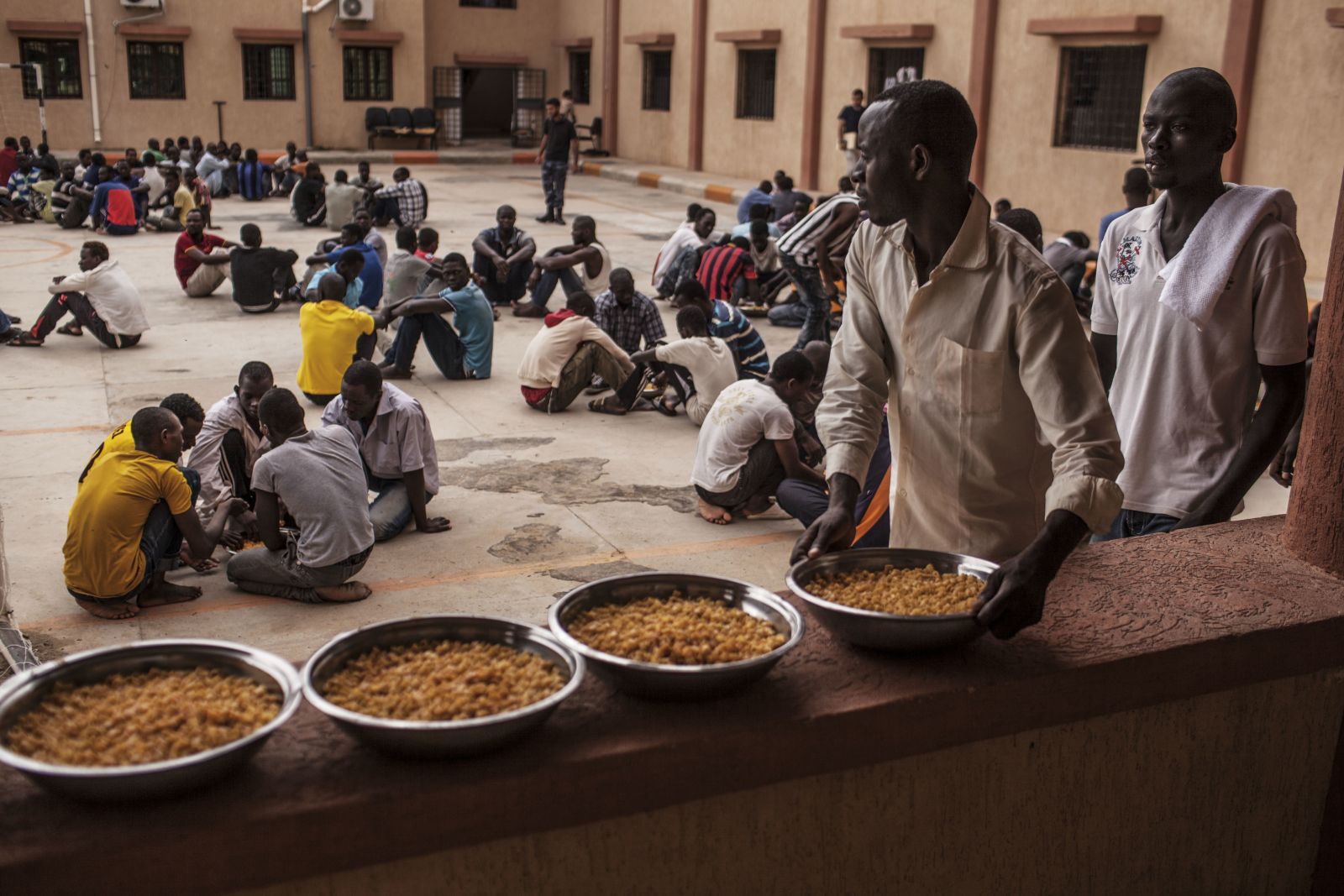Political transition
Is Tunisia’s democracy at risk?

After Kaïs Saïed won the presidential elections on 13 October 2019 by a landslide, thousands of demonstrators gathered in downtown Tunis, chanting slogans, waving the national flag and – for the first time in years – celebrating enthusiastically a political event. Saïed, an expert in constitutional law and a political outsider, had run without the support of a political party or a well-established base. His victory was widely appreciated and indeed inspired new hope. He is considered to be trustworthy and impossible to corrupt.
Tunisia’s established leading political forces, by contrast, were rejected by voters: the moderately Islamist Ennahda party and the free-market oriented political current with links to Tunisia’s old political elite and a reputation for corruption. However, the hope that Saïed’s election would result in policies designed to achieve the goals of the 2011 revolution was soon dashed. Ten years after the revolution, frustration is palpable across the country. Yes, freedom of expression and freedom of the press are in force, and free elections are held, but some core demands of the revolutionaries remain unfulfilled. The young generation did not only demand political freedoms in 2011. It also called for social justice as well as an end to corruption, mismanagement and cronyism. The rioting that has marked the anniversary of the revolution shows that masses of people are deeply frustrated.
Ben Ali’s downfall
The immediate trigger of the uprising was the self-immolation of Mohamed Bouazizi, a vegetable seller, in the central Tunisian town of Sidi Bouzid on 17 December 2010. Police officers had confiscated the goods of the 26-year-old merchant, depriving him of his means to earn a living. Protests spread across western Tunisia immediately after Bouazizi’s death, quickly turning into a nationwide mass revolt against Ben Ali, who had held power since 1987. On 14 January 2011, Ben Ali fled to Saudi Arabia, where he died in 2019 without having been held accountable for his crimes by Tunisian judges.
With his downfall, the political transition began. The dictatorship was dismantled. However, social disparities, a crippling economic crisis and the country’s dependence on Europe for its foreign trade proved to be lasting problems. In Tunisia, civil society is stronger and more developed than in any other country of the region. It is the most important force that protects civic freedoms achieved since the 2011 revolution. Countless human-rights groups, trade unions, grassroots organisations and an independent press have successfully opposed counter-revolutionary initiatives that the long-established elite has launched. Thanks to activists’ determination, the principles that were enshrined in the new constitution of 2014 have not been diluted significantly.
Socio-economic time bombs
Tunisia now has controversial public debates and a multiparty system, but its young democracy has nonetheless suffered serious setbacks. Two leftist trade-union leaders, Chokri Belaïd und Mohamed Brahmi, were assassinated in 2013. There were terror attacks in 2015. The political order still looks shaky – there have been 10 prime ministers since 2011, of whom Hichem Mechichi is the latest.
Ennahda and centrist parties with links to the old political elites have dominated Tunisian politics since 2011. Either unable or unwilling, they did not manage to tackle the dismal poverty and blatant disparities that mark Tunisia’s southern and western provinces. Infrastructure needs to be built or modernised, and public services must be provided and expanded. None of that is happening. Indeed, poverty and unemployment rates have even increased significantly.
A transitional-justice system was supposed to prosecute the crimes committed by Ben Ali and his allies. It has not made much progress. Tunisia’s police is still not properly held accountable and continues to act arbitrarily. Police officers are still known to confiscate street traders’ goods. Tunisia has seen reoccurring waves of protests and strikes, but the security forces – and most notably the Ministry of Interior – resist structural reforms. Since 2017, they have been repressing social movements with increasing force. Recent epicentres of protests were Tataouine in southern Tunisia as well as Sidi Bouzid and Gafsa.
The political rise of the Parti Destourien Libre (PDF – Free Destur Party) is ominous. It takes a populist, counter-revolutionary stance and wants the country to return to an autocratic presidential system. It is successfully leveraging people’s frustration with Tunisia’s socio-political standstill.
From the start, Europe supported Tunisia’s transition to democracy, providing funding to civil-society organisations and bolstering institutional reforms with aid (in the form of grants, loans and budget support). However, European priorities shifted after the so-called refugee crisis of 2015, with EU leaders now focusing on preventing irregular migration. That approach, however, hardly helps to promote democratic change. Instead of pursuing Europe’s narrow-minded interests, the EU would be well advised to provide Tunisia’s government with the means needed to respond to marginalised regions’ socio-economic demands. That is what the EU should do if it wants to promote and stabilise Tunisia’s young democracy.
Since 2015, debt servicing has been the largest single item in Tunisia’s national budget. That money cannot be used for urgently needed investments. EU-funded development projects are welcome, but they only amount to a drop in the ocean. Tunisia is the region’s first – and so far only – democracy. If western policymakers want it to succeed, they should deal with issues such as migration and trade in ways that do not only entrench European influence, but actually serve the interests of the Tunisian people and its economy.
Sofian Philip Naceur is a freelance journalist based in Tunis. He specialises in covering Algeria, Egypt and Tunisia.
mail@sofiannaceur.de
Twitter: @SofianNaceur








